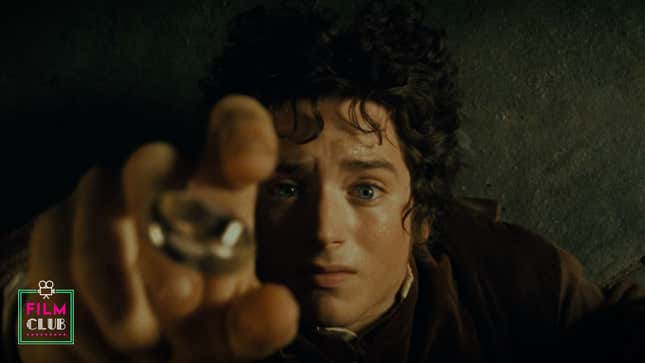
For almost as long as there have been movies, there have been movies based on literature. Even in the age of superhero spectaculars, novels remain one of Hollywood’s prime sources of source material. But transporting a story from page to screen isn’t always so simple. On this week’s brand-new episode of Film Club, critics A.A. Dowd and Katie Rife explore the tricky art of adaptation, identifying the pitfalls of this common practice, and why the expression “The book is better” still rings plenty true much of the time.
You can hear the entire conversation in the episode above, or read a lightly edited excerpt down below.
Katie Rife: As an awards consideration, there is a difference between an adapted and an original screenplay—that’s been part of the Oscars since the very beginning, since 1929. And the Writers Guild Awards—you know, people who write screenplays for a living—also make the distinction. Not all awards ceremonies do; the Golden Globes, Independent Spirit Awards, for example, don’t make distinctions between adapted and original. But when it comes to awards that are voted on by screenwriters, there does seem to be a distinction made between the art of writing an original screenplay and the art of adaptation.
What I’m really interested in is how they’re different creatively. We see all kinds of different adaptations. Most common are novels. Also nonfiction articles, video games, and now with Zola tweet threads have entered the conversation of things that can be adapted. But we’ll concentrate on books today. I know you have some thoughts about the challenge of adapting a novel for the screen.
A.A. Dowd: I think that writing an original screenplay is a lot like taking a lump of clay and building something out of it. You take this raw material—something from your imagination—and you build it into a coherent piece of work. With adapting something, you’re kind of chipping away at a block. There is already this existing work, and you are trying to make something different out of it.
Katie Rife: There are a lot of elements in novels that don’t necessarily translate well to the screen. Novels are great for interiority, and getting inside a character’s head. That’s significantly more difficult to do in a film.
A.A. Dowd: Yeah, filmmakers have been finding easy and convenient ways to get around that aspect for years. Voiceover is the one that I feel like is cited the most often. And sometimes when [a writer is] adapting a novel, they will just take passages of first person musings and narration from the book and turn it straight into voiceover. That’s obviously the easiest way, but I think it’s a very poor substitute for the interiority that a novel can provide through prose.
Katie Rife: I agree. And most of the time when you’re using a lot of voiceover like that, it drags down the movie, too. It’s hardly ever an asset, honestly.
A.A. Dowd: Well, we could do a whole episode on that, honestly, because I do think there are lots of very creative and very interesting uses of voiceover. I think there are filmmakers who are excellent at it. Somebody like Charlie Kaufman, an adaptation expert in some ways, or at least one who has some really radical ideas about how you can transform a preexisting work into a movie. But I think [voiceover] ends up being a crutch, for a lot of filmmakers.
The issue of interiority is big. When you’re reading a novel, something that prose can offer is a direct window into what a character’s thinking in a really organic, natural way. Movies have to fight a little harder to make that interior space legible to us.
Listen to the podcast above, subscribe on Apple Podcasts, and give us a five-star rating to help other listeners find us. And while you’re there, check out The A.V. Club’s other podcasts, Push The Envelope and Dial M For Maple.